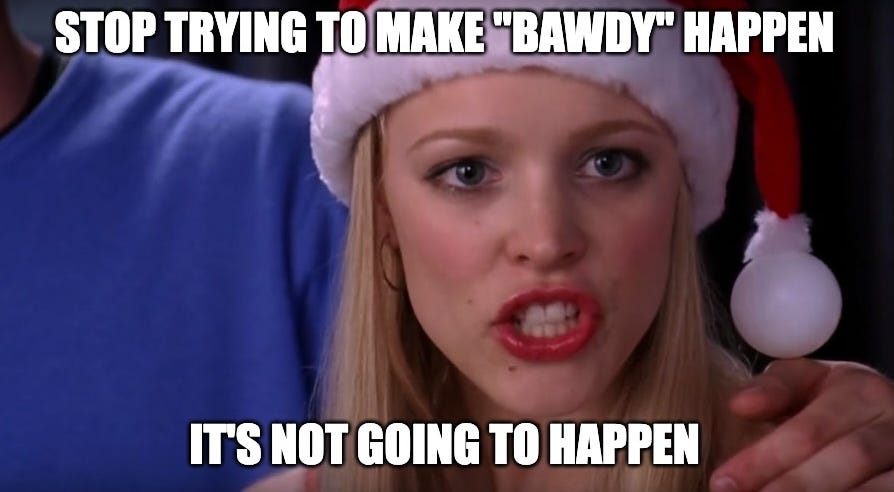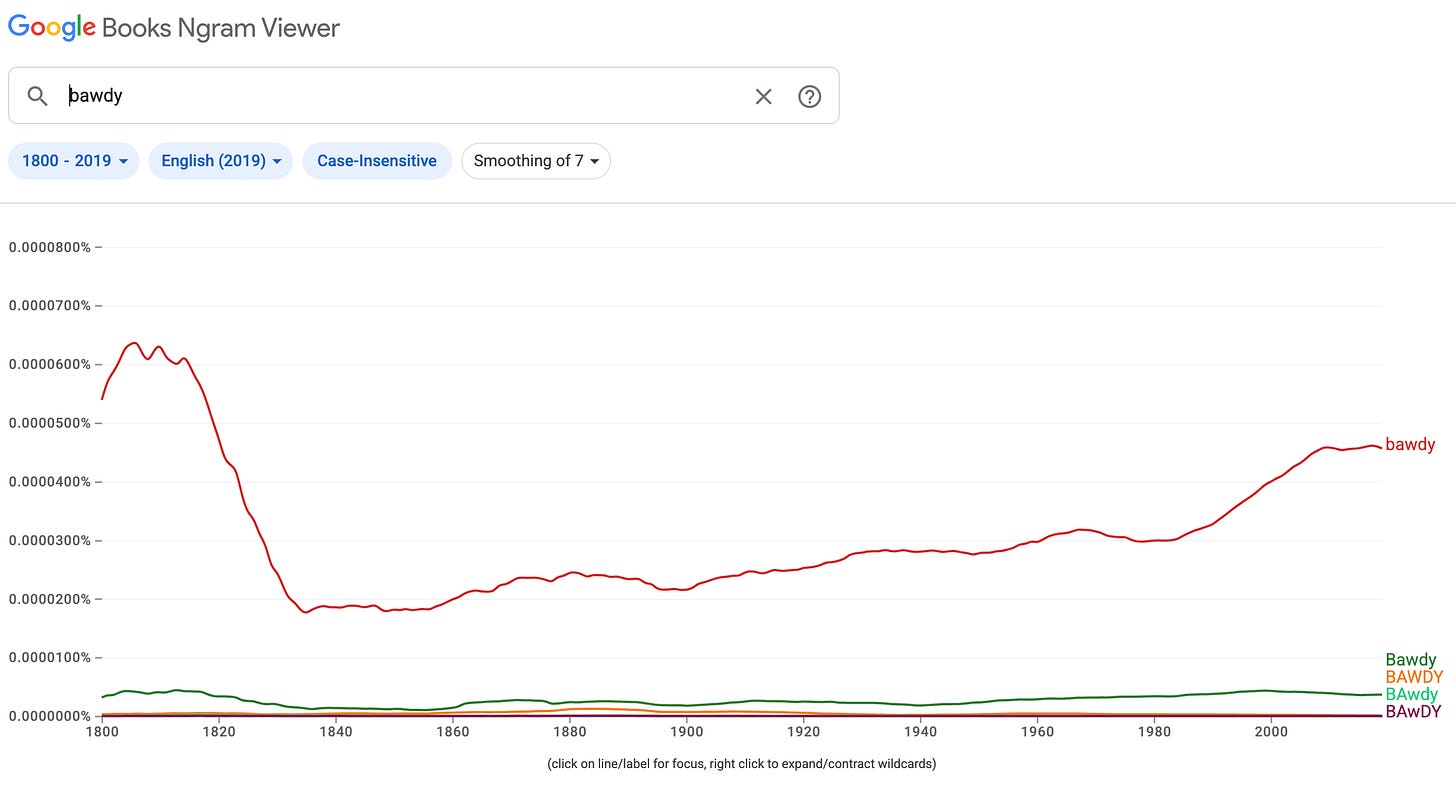Hottie With a "Bawdy"
Searches for “bawdy” spiked shortly after the Trump-Epstein WSJ article was published on Thursday.
I apologize for writing back‑to‑back posts about Google searches related to Jeffrey Epstein. But I can’t help it. I keep running into fascinating search patterns.
And fair warning: I have a third one in the works. I’m not gonna say what it’s about, but, given my desire for a quick turnaround, let’s just say I’ll be working at the speed of sound. 😉
So here’s today’s fun fact: Last Thursday, at around 7 pm EST—shortly after the Wall Street Journal published an article describing a “bawdy” letter that President Trump allegedly sent to Jeffrey Epstein for his 50th birthday—searches for the word “bawdy” spiked across the United States.
And Google search data shows that the article left Americans asking some important questions. Namely: What the hell does “bawdy” mean?!
Three of the top five related queries1 for “bawdy” were about its meaning. In fact, about 25 percent of all “bawdy” searches also included the word “definition.”
To be fair, “bawdy” isn’t exactly a common word these days. According to Google N‑grams, which charts word frequency in printed sources from 1500 to 2022, the term peaked in popularity in 1806. For context, back then, the most famous George Clinton was the sitting vice president of the United States, and not a famous funk music legend.2
As the graph shows, usage dropped off sharply from 1814 to 1834, but it’s been making a slow comeback ever since. Maybe this Wall Street Journal article will push it over the top. Let’s do it: let’s make fetch bawdy happen!
And because I can’t resist, here’s one more twist: state‑level search interest in “bawdy” closely tracked 2024 presidential results. Put simply: the higher a state’s Google Search Score for “bawdy,” the lower Trump’s vote share tended to be.
(Google Search Scores are normalized values that reflect a term’s search interest relative to the total number of searches in that state.)
Take a look at the scatterplot below. Each point represents a state. On the x‑axis is that state’s Google Search Score for “bawdy.” On the y‑axis is Trump’s 2024 vote share. Points are red if Trump won the state and blue if he did not.
Trump won all 24 states where searches for “bawdy” were least popular, and lost all 13 where they were most popular! 🤯
It seems Trump’s supporters were less excited to read about this “bawdy” letter.
Feel free to dig deeper with the interactive table below. You can sort the data by clicking on column headers.
I gotta get back to work on my next post. It’s a lot of work, but hey, Nobody said it was easy. Am I right? 😉
Google Trends defines “Related searches” as: “Users searching for your term also searched for these queries.”
I can’t tell you how long I’ve wanted to make a joke about how the fourth U.S. vice president and one of funk’s most influential artists share the same name.




a different kind of parliament